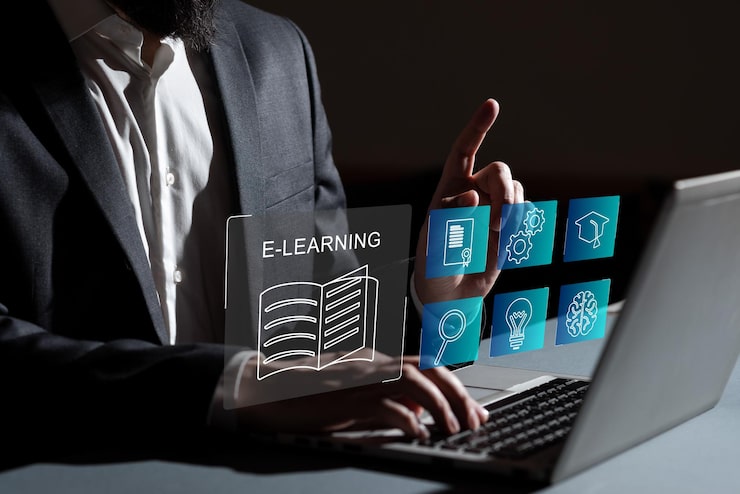Tech Learning Platforms have redefined the educational landscape, offering students the opportunity to learn efficiently, interactively, and flexibly. In today’s digital age, online learning has become more than a supplement to classroom teaching—it is a primary avenue for acquiring knowledge, enhancing skills, and preparing for competitive careers. With advancements in technology, students now have access to high-quality content, personalized learning experiences, and real-time feedback, all from the comfort of their homes.
The emergence of tech-based educational tools has made learning more engaging and effective. From interactive simulations to AI-driven tutoring systems, these platforms support students in mastering concepts that were once challenging in traditional settings.
Enhancing Learning Through Interactivity
One of the key strengths of tech learning platforms lies in their interactive design. Unlike traditional textbooks, these platforms utilize videos, quizzes, discussion forums, and gamified learning modules to keep students engaged.
For instance, platforms offering coding courses allow students to write and test code in real-time, receiving immediate feedback. Similarly, language learning applications use interactive exercises and speech recognition to enhance pronunciation and comprehension. This type of engagement fosters deeper understanding, helps retain information, and encourages active participation in the learning process.
Personalized Learning Experiences
Every student learns differently, and tech learning platforms excel at addressing individual needs. AI-driven systems analyze a student’s performance, identify areas of weakness, and adapt lessons accordingly.
Consider a student struggling with mathematical concepts. The platform can provide targeted practice exercises, video explanations, and interactive problem-solving activities tailored to that student’s learning pace. Personalized learning ensures that students are not overwhelmed or left behind, enhancing confidence and motivation while promoting consistent progress.
Accessibility and Flexibility
Online learning removes geographical and temporal barriers. Students from different parts of the world can access high-quality educational content anytime, anywhere. Whether preparing for exams, learning a new language, or exploring coding, tech learning platforms provide the flexibility to schedule study sessions according to individual routines.
A working professional pursuing further education can benefit from evening classes, while a high school student may engage in morning sessions. The flexibility offered by these platforms makes continuous learning feasible, accommodating diverse lifestyles and responsibilities.
Real-Time Feedback and Assessment
Immediate feedback is crucial for effective learning. Tech learning platforms provide instant evaluation of quizzes, assignments, and interactive exercises, allowing students to correct mistakes promptly.
For example, in online science labs or simulation exercises, students can immediately see the outcomes of their experiments, understand errors, and adjust their approach. This iterative learning process strengthens comprehension, reduces frustration, and helps students develop problem-solving skills essential for academic and professional success.
Collaborative Learning Opportunities
Despite being online, many tech learning platforms foster collaboration. Discussion boards, peer-to-peer tutoring, and group projects enable students to exchange ideas, clarify doubts, and learn collectively.
Platforms that support live webinars and virtual classrooms allow instructors and students to interact in real time, simulating a traditional classroom environment. This collaborative aspect not only builds knowledge but also enhances communication, teamwork, and networking skills among students.
Integrating Multimedia and Real-World Applications
Learning is more effective when students can relate concepts to real-world applications. Tech learning platforms integrate multimedia content, such as interactive videos, infographics, and case studies, to demonstrate practical applications of theoretical knowledge.
For example, business students can analyze real market data, simulate investment decisions, and assess outcomes, providing hands-on experience that reinforces textbook learning. Similarly, environmental science learners can explore virtual ecosystems, understanding the impact of human activities on nature through simulations.
Supporting Lifelong Learning
Education does not end with a degree. Tech learning platforms promote lifelong learning by offering courses on emerging technologies, soft skills, professional certifications, and personal development.
A student may begin with academic subjects and later transition to learning skills like digital marketing, data analysis, or project management. The availability of diverse courses ensures continuous growth, keeping learners adaptable in a rapidly changing world.
Case Study: A Student’s Journey
Consider a student preparing for competitive exams while balancing extracurricular activities. By using tech learning platforms, the student accesses tailored lessons, tracks progress, and engages in interactive problem-solving sessions. Collaborative forums allow discussing challenging topics with peers, while instant feedback corrects mistakes in real time. Multimedia content clarifies complex concepts, making learning both efficient and enjoyable. This integrated approach exemplifies how digital platforms empower students to excel academically and personally.
Security and Ethical Considerations
As online learning expands, ensuring data privacy and ethical use of content is essential. Reliable tech learning platforms implement encryption, secure logins, and adherence to privacy regulations, protecting students’ personal information.
Moreover, students learn to use digital tools responsibly, respecting copyright, avoiding plagiarism, and practicing ethical research. Integrating security and ethics into the learning experience equips students with skills relevant for both academic and professional settings.
Continuous Updates and Innovation
The rapid evolution of technology demands that learning platforms stay current. Updated content, AI improvements, and new interactive tools ensure that students receive relevant knowledge and are exposed to the latest methodologies.
For instance, tech learning platforms introducing coding courses continually update programming languages and frameworks, reflecting industry standards. This continuous innovation keeps students ahead of trends, preparing them for higher education and future careers.
Read also:
mexican desserts
panera bread menu
panera bread menu
dairy queen menu

